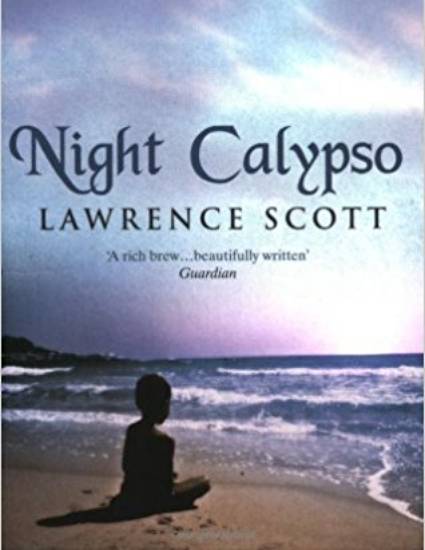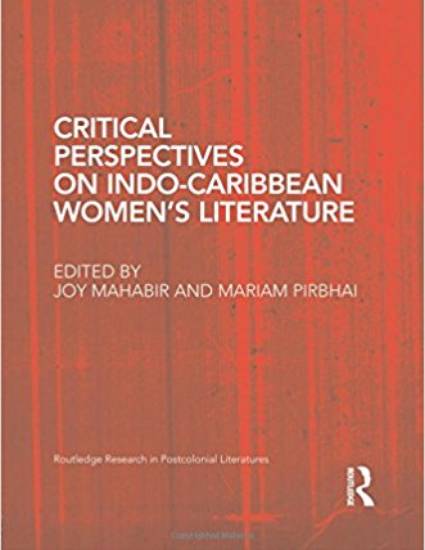Articles & Essays
‘Another Shape to Time’: Tentacle’s Spiral Now.
Small Axe Salon 34, June 2020
This essay situates Rita Indiana’s Tentacle (2018) in the context of time travel narratives from within and without the Caribbean, and amidst ongoing debates about responses to impending climate disaster. Science fictional time travel is a way of working out puzzles of both time and narrative in a field of play. But while Indiana draws on tropes common to “timey-wimey” sci fi, she reframes them through decidedly Caribbean concepts. Instead of the time machines and time portals of her favorite American sci-fi authors, Indiana draws on Afro-Caribbean cosmology, particularly Olokun, the androgynous orisha of the timeless deep sea, to illuminate the Caribbean’s unstable, spiral spacetime—fruit of ongoing political instability and (un)natural disasters. I argue that the novel’s spiral temporality expands the Now, multiplying the moments for potential action while opening up questions about the shape of Caribbean time. In so doing, Tentacle exposes how Caribbean precarity makes urgent an attentiveness to the specificity of anthropogenic climate change in the region.
READ MORE on Small Axe Salon
Rita Indiana’s Tentacle: An Introduction.
Small Axe Salon 34, June 2020
The discussion of Rita Indiana’s Tentacle (2018; La mucama de Omicunlé 2015) in this issue by three colleagues at the University of Virginia offers a glimpse of how collaborative, interdisciplinary work has allowed us to see the submarine unity, even the tentacles and sargassum that connect us in an expansive Caribbean. This section introduction offers a broad contextualization of the performance artist, musician and prolific novelist who is not only one of the most important writers in the region, but also one whose multimodal, intersectional, border-crossing work captures the essence of Caribbeanness. To read Tentacle is to read and hear these resonances and rhizomatic connections across genres, genders, countries and expressive modes.
READ MORE on Small Axe Salon
Portrait of the Calypsonian as a Young Man: Review of Anthony Joseph’s Kitch: A Fictional Biography of a Calypso Icon. (Peepal Tree: 2018).
Small Axe Salon 31, June 2019
When Trinidadian-born poet, musician, and novelist Anthony Joseph set the publication date of his second novel to coincide with the seventieth anniversary of the arrival of the Empire Windrush at Tilbury, he could not have foreseen the 2018 scandal that rocked Britain and the Caribbean diaspora. British citizens, by virtue of both birth under empire and the 1948 British Nationality Act, were stripped of citizenship rights and deported from the home and society they had helped build for more than half a century. There is perhaps no other Caribbean individual so suited to encapsulate the Windrush generation than calypsonian Lord Kitchener, especially given the iconic images of his disembarking on 22 June 1948 and singing the now infamous strains of “London Is the Place for Me” into the microphone of a Pathé journalist. These scenes appear a third of the way into Kitch: A Fictional Biography of a Calypso Icon, but they telegraph the salient questions of belonging that the novel probes and the social and historical record that Trinidadian calypso creates in song.
READ MORE on Small Axe Salon
Jamaican String Theory: Quantum Sounds and Postcolonial Spacetime in Marcia Douglas’s The Marvellous Equations of the Dread
Journal of West Indian Literature, 27, no. 1 (2019): 88-105
This essay examines the politics, poetics and physics of technologies of time in The Marvellous Equations of the Dread. I trace how its dysfunctional clock tower, an interdimensional portal, marks unstable spacetime and mimics the disorientation ushered in by colonial epistemologies that violently displace the archives of Jamaican memory. To recover Jamaican temporalities, Douglas draws inspiration from the quantum mechanics of dub’s echo effects and crafts a Jamaican version of a theoretical model in physics called ‘string theory.’ In the novel’s version, tree roots, Rastafari locs and guitar strings amplify the subterranean vibrations of black pain on the clock tower site. These infrasonic disturbances destabilize clock time and give rise to alternate forms of memory, narration and motion—including time travel and teleportation. I argue, therefore, that the way that sounds move in the novel gets to the heart of profound questions about the nature of Caribbean space and time.
‘Jah Live’: Messianic Time and Post-Traumatic Narrative Disorder in Marlon James’s A Brief History of Seven Killings
Journal of West Indian Literature, 26, no. 2 (2018): 80-95.
This essay unpacks the time markers in Marlon James’s A Brief History of Seven Killings to interrogate the impact of trauma on the perception and narration of time. Drawing parallels with the Christian Messiah and extending the trope of eternal life in Bob Marley’s song, “Jah Live,” I examine the novel’s depiction of what I call ‘post-traumatic narrative disorder,’ a novelistic rendering of PTSD .In the song and the gospels alike, narrators posit eternal life to negotiate the sudden death of a messianic figure and its consequences for their own life and death. Correspondingly, I trace the relative clock-speeds in the narratives of two sets of James’s characters—the dead who narrate eternity in an instant, and the living who are anticipating death—to show how the trauma of death disorders and dilates the subject’s experience of time. I argue that the phrase “Jah Live” indexes a messianic and post-traumatic conception of time where the “at-hand,” the “now,” and the “already” collapse into an extended and disordered narrative instant
“‘From Silent Wounds to Narrated Words’: Calypso Storytelling in Lawrence Scott’s Night Calypso.”
Anthurium: A Caribbean Studies Journal 10, iss. 1, art. 3 (2013).
In this article, I examine Night Calypso’s depiction of the relationship between trauma and calypso narrative, particularly, the ways in which the music form is constructed in the novel as an apt narrative mode for traumatized and wounded peoples. I argue that the novel proposes calypso storytelling, with its linguistic and formal displacements, reenactments and masquerades, as a means by which traumatized postcolonial peoples wrest agency over their past, present and future.
"Music and a Story": Sound Writing in Ramabai Espinet’s The Swinging Bridge
Critical Perspectives on Indo-Caribbean Women’s Literature (New York: Routledge, 2013)
Throughout her oeuvre, Ramabai Espinet, Indo-Trinidadian Canadian poet, scholar and novelist, has made clear her longstanding concerns with the erasure of Indo- Caribbean women in the literature, culture, and politics of the region. Her 2003 novel The Swinging Bridge is a clear contestation of that erasure, in its almost manifesto-like voicing of the Indo-Trinidadian female experience. In this chapter, I examine the ways in which the novel’s narrator, Mona’s placelessness is signaled by her relationship to the sounds, rhythms and cultural influences that form both the novel’s soundscape, and the soundtrack of her life: Canadian Presbyterian hymns, calypso (kaiso) music, and Indo-Trinidadian folk songs. The novel critiques the politics of these musical genres that operate as repositories of problematic colonial, national and patriarchal ideologies, and contrasts them with the chutney songs that Mona finds recorded in her grandmother’s journal. I argue, therefore, in its investment in recuperating and validating alternate types of records, both musical and written, the novel works to sound out the previously silenced testimonies of Indo-Trinidadian women.
On Memory and the Archives of History: A Conversation with Lawrence Scott
(Wasafiri Magazine, 2017)
Lawrence Scott is the acclaimed author of four novels—Witchbroom (1992), Aelred’s Sin (1998), Night Calypso (2004), and Light Falling on Bamboo (2012). He has also published two story collections, Ballad For The New World (1994) and Leaving By Plane Swimming Back Underwater (2015). He is the editor of Golconda: Our Voices Our Lives (2009), an oral history of life on a sugarcane estate in Trinidad. Born into a French and German Trinidadian family on a sugar estate in southern Trinidad, in 1963 Scott left the island for England to pursue a vocation as a Benedictine monk. He found his true calling as a Caribbean writer, however, upon returning to Port of Spain as a teacher in the late 1970s. Each of his novels has been short-listed for the Commonwealth Writers’ Prize, which Aelred’s Sin won (Best Book in the Caribbean and Canada) in 1999. It was also long-listed for the Whitbread and Booker Prizes in 1999. The following edited conversation took place between October 2016 and January 2017. This year marks the twenty-fifth anniversary of the publication of Witchbroom, with an anniversary edition forthcoming from Papillote Press in April 2017.





